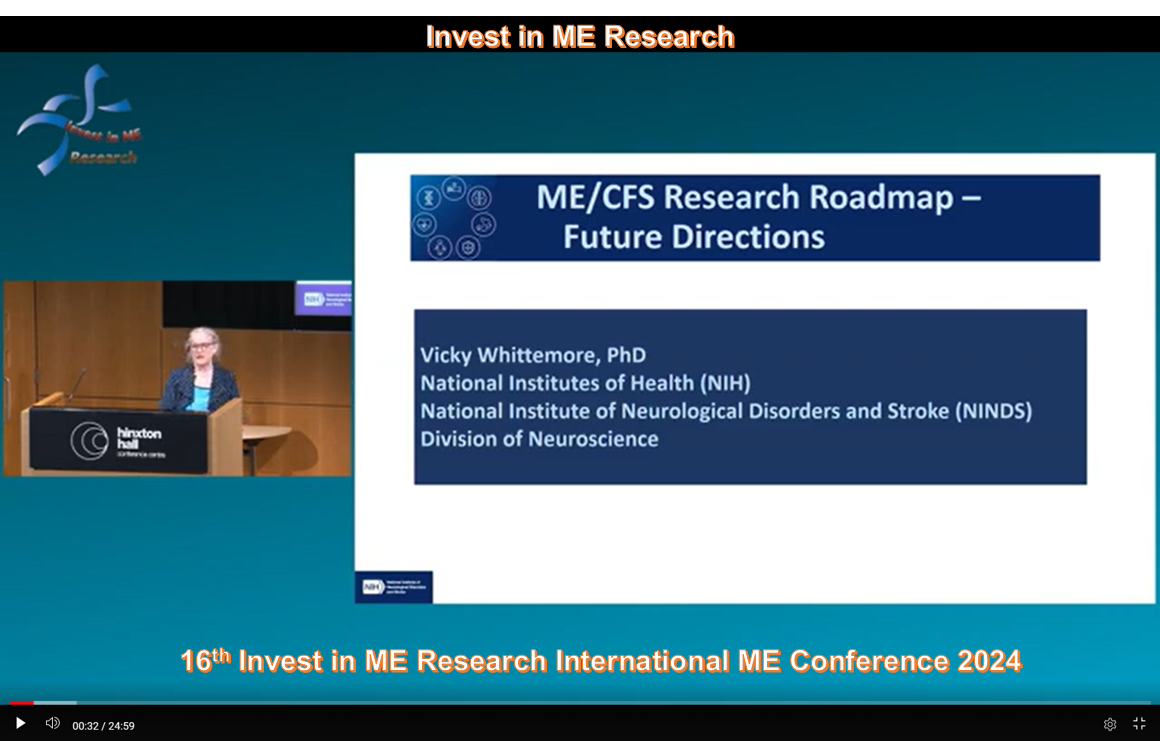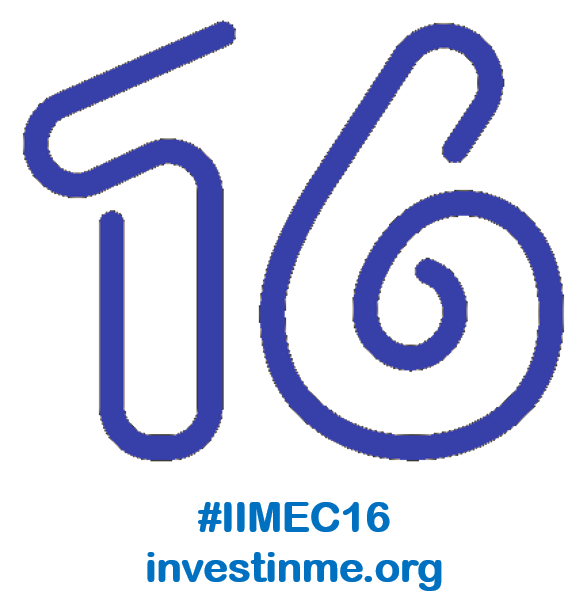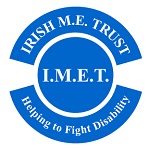Professor Simon Carding, Quadram Institute, UK
Research Leader, Quadram Institute Bioscience, Norwich Research Park, UK
Professor Simon Carding
Upon completing postgraduate work at the Medical Research Council’s Clinical Research Centre in Harrow, Professor Carding “emigrated” to the USA to
take up a postdoctoral position at New York University School of Medicine, and then at Yale University as a Howard Hughes Fellow in the Immunobiology
Group at Yale University with Profs Kim Bottomly and Charlie Janeway Jr. While at Yale an interest in gamma-delta (γδ) T cells was acquired working
closely with Adrian Hayday on molecular genetics and then with Prof. Peter Doherty to establish their role in (viral) infectious disease.
He left Yale after five years to take up a faculty position at the University of Pennsylvania in Philadelphia where he developed a
research interest in mucosal and GI-tract immunology, performing studies in germfree mice with Prof John Cebra that helped establish the role of gut
microbes in the aetiology of inflammatory bowel disease (IBD).
After 15 years in the USA, he returned to the UK to take up the Chair in Molecular Immunology at the University of Leeds where he
established a new research programme on commensal gut bacteria and Bacteroides genetics leading to the development of a Bacteroides drug delivery
platform that is being used for developing new interventions for IBD and for mucosal vaccination.
In 2008 he was recruited by UEA and IFR to develop a gut research programme, taking up the Chair of Mucosal Immunology at
UEA-MED and the position of head of the Gut Biology Research Programme at IFR, which later became part of the Gut Health and Food Safety (GHFS) Programme.
GHFS research covers a broad area of gut biology including epithelial cell physiology, mucus and glycobiology, mucosal
immunology, commensal microbiology, foodborne bacterial pathogens, and mathematical modelling and bioinformatics. The success of this
programme has led to the establishment of the Gut Microbes and Health research programme that is integral to the research agenda of The Quadram Institute.
Dr Vicky Whittemore
Program Director,
Division of Neuroscience,
National Institutes of Health, USA
Dr Vicky Whittemore
USA
Dr. Whittemore oversees a grant portfolio that includes basic, translational and clinical studies on epilepsy.
These include grants on sudden unexpected death in epilepsy (SUDEP), the genetic epilepsies, and seizure localization studies.
In addition, she oversees a grant portfolio on myalgic encephalomyelitis/chronic fatigue syndrome (ME/CFS) and fatigue.
Her additional interests are in research on global health issues, stigma, and co-morbidities.
Dr Brian Walitt, National Institutes of Health, USA y
Bhupesh Prusty currently works at the Institute for Virology and Immunobiology, University of Wuerzburg. Bhupesh does research in Microbiology
and Virology. His current research focuses on ciHHV-6 reactivation and its clinical consequences.
Professor Lutz Schomburg,
Charité University Hospital, Germany /
The Tronstad Lab investigates cell metabolism and mitochondrial biology.
Professor Maureen Hanson,
Liberty Hyde Bailey Professor, Department of Molecular Biology and Genetics, Cornell University, New York, USA
Professor Maureen Hanson
USA
Maureen Hanson is Liberty Hyde Bailey Professor in the Department of Molecular Biology and Genetics at
Cornell University in Ithaca, NY. Previously she was on the faculty of the Department of Biology at the
University of Virginia in Charlottesville and an NIH NRSA postdoctoral fellow at Harvard, where she also
completed her Ph.D. degree. While most of her prior research has concerned cell and molecular biology in
plant cells, she began a research program on ME/CFS after noting at a 2007 IACFS meeting the paucity of
molecular biologists studying the illness. Her lab was part of the 2012 multicenter study organized by
Ian Lipkin's group at Columbia University to assess the actual role of XMRV in ME/CFS. Dr. Hanson has
a current project to examine the microbiome of ME/CFS patients and controls, in collaboration with
Dr. Ruth Ley (Cornell Microbiology) and Susan Levine, M.D. (Manhattan, NY). Dr Levine is also collaborating with
Dr. Hanson on an immune cell gene expression project that involves Dr. Fabien Campagne and Dr. Rita Shaknovich at
Weill Cornell Medical School in New York City. Dr. Hanson's third project concerns analysis of blood samples from
individuals performing a two-day cardiopulmonary exercise test at Ithaca College under the supervision of Dr. Betsy Keller.
Dr Rob Wüst,
Vrije University Amsterdam, Netherlands
Dr Rob Wüst
Netherlands
Dr Wüst obtained a double-doctorate on muscle physiology in 2009 from the Manchester Metropolitan University and
the Vrije University Amsterdam.
From 2009-2012, he worked at the University of Leeds (UK) on the control of mitochondrial respiration during exercise.
After returning to the Netherlands, heworked on various projects related to cardiac metabolism and mitochondrial function at the Amsterdam
UMC, locations VUmc and AMC. Since 2019, he has been assistant-professor at the Department of Human Movement Sciences of the VU University.
He is involved in teaching and research in the areas of exercise and clinical immunology, exercise and muscle physiology and is
a regular supervisor of BSc and MSc internships. He is involved in a large ESA/NASA-funded bedrest-study where the effects
of microgravity are studied on the cellular and molecular level, and performs a large study understanding fatigue in patients
with Long COVID and ME/CVS.
Since 2024, he has been heading the section Physiology at the Department of Human Movement Sciences
Professor Nancy Klimas, Nova Southeastern University, Florida, USA
Professor Nancy Klimas
USA
Director, Institute for Neuro Immune Medicine, Nova Southeastern University.
Director, Clinical Immunology Research, Miami VAMC
Professor of Medicine, Department of Clinical Immunology, College of Osteopathic Medicine, Nova Southeastern University
Chair, Department of Clinical Immunology, College of Osteopathic Medicine, Nova Southeastern University
Professor Emerita, University of Miami, School of Medicine
In for her research and clinical efforts in multi-symptom disorders, Myalgic Encephalomyelitis/Chronic Fatigue Syndrome (ME/CFS),
War Illness (GWI), Fibromyalgia, and other Neuro Immune Disorders. She is immediate past president of the International Association
for CFS and ME (IACFS/ME), a professional organization of clinicians and investigators, and is also a member of the VA Research Advisory
Committee for GWI, the NIH P2P CFS Committee, and the Institute of Medicine ME/CFS Review Panel. Dr. Klimas has advised three Secretaries
of Health and Human Services, including Kathleen Sabelius, during her repeated service on the Health and Human Services CFS Advisory Committee.
Dr. Klimas has been featured on Good Morning America, in USA Today and the New York Times.
Dr Violetta Renesca,
Institute for Neuro-Immune Medicine,
Department of Clinical Immunology,
Dr. Kiran C. Patel College of Osteopathic Medicine, Nova Southeastern University, USA
Dr Violetta Renesca
USA
Violetta Renesca is a Board Certified Adult Nurse Practitioner focusing on functional and integrative approaches to treat
patients with complex neuro-inflammatory conditions. She obtained a Bachelor of Science degree in Nursing from Nova
Southeastern University and worked as a staff nurse and charge nurse on the Progressive Care Unit at Broward Health.
After receiving her Master’s Degree from Florida International University as an Adult Nurse Practitioner, she joined a large
multi-specialty geriatric center in Fort Lauderdale. Violetta obtained a Doctorate in Nursing Practice from the University of North Florida.
Violetta’s focus at the INIM includes myalgic encephalomyelitis/chronic fatigue syndrome, Gulf War illness, chronic infections,
metabolic syndrome, chronic pain, environmental illness, detoxification, and autoimmune diseases. As a certified practitioner for the
Institute for Functional Medicine, she works with patients to create personalized treatment plans that addresses root causes of chronic illness.
She is also the Director of the Veterans Clinic where she sees patients with Gulf War illness. Additionally, she is a member of the American
Association of Nurse Practitioners as well as the Institute for Functional Medicine.
https://www.nova.edu/nim/clinic/renesca-bio.html
Dr Irina R Rozenfeld, Nova Southeastern University, Florida, USA
Professor Nancy Klimas
USA
.................
Dr Jesper Mehlsen, Research Director, Coordinating Research Centre, Bispebjerg and Frederiksberg Hospital, Denmark
Co-chair European ME Research Group
Dr Jesper Mehlsen graduated as a medical doctor in 1979 and finished his specialist training in 1990.
He has published more than 140 scientific papers in peer reviewed journals, mainly on the autonomic nervous system and more recently
on complex diseases possibly resulting form HPV-vaccination.
For more than 35 years, he has worked clinically and in research with dysfunction of the autonomic nervous system.
Such dysfunction may lead to symptoms from a number of different organs often dominated by diminished control of blood pressure
and heart rate.
Over the past 5 years, he has worked clinically and in research with patients who suspect side effects due to HPV vaccination to
be the cause of a number of symptoms, common to those seen in chronic ME.
Dr Mehlsen is co-chair of the European ME Research Group (EMERG).
Dr Dezső Modos, Imperial College London, UK
Dr Dezső Modos
UK
Dr Dezső Modos is an Imperial College Research Fellow in the Systems Medicine division of the Department of Metabolism,
Digestion and Reproduction.
He completed his medical degree at Semmelweis University and a minor in bionics at the Pázmány Péter Catholic University. Later he obtained
his PhD at the Semmelweis University on network biology.
His primary focus was the intracellular signalling network in cancer and understanding the role of paralogues in signalling.
After his PhD he moved to Cambridge and learned cheminformatics. He used network biology to understand and predict compound synergy in cancer.
Here he also learned about various cheminformatic techniques, which he is adapting for his fellowship. The current inflammatory bowel disease
(IBD) therapies maintain remission only in around 30% of cases forming therapeutic celling. His fellowship aims to find the right drug to the right
patient in IBD.
Similarly, using the targets of IBD drugs as a source node can build a drug specific network footprint. The comparison of patient-specific
disease and drug networks, much like connectivity mapping, can aid in identifying the correct drug for each patient. Single nucleotide polymorphisms
(SNPs) in inflammatory bowel disease are often in the non-coding region of the genome. He and his colleagues developed a tool called iSNP
(https://github.com/korcsmarosgroup/iSNP) which can map these single nucleotide polymorphisms to regulatory regions and through that SNP
affected genes.
From the SNP affected genes, patient specific signalling networks, individual pathogenetic pathways and patient specific network footprints
can be constructed.
Already, he used this method to understand ulcerative colitis pathogenesis.
See https://www.imperial.ac.uk/people/d.modos
Rowan Gardner, Co-founder, precisionLife, UK
Rowan has over 30 years of experience working in innovative businesses applying computational methods to life science and patient
data to understand disease and find new medicines and treatments for unmet medical needs. She is an experienced entrepreneur and
advisor to fast growing companies and is a Co-founder and Chief Business and Investment Officer of PrecisionLife, expanding precision
medicine in chronic disease. She is also on the board of Digital Health and Care Wales a strategic health authority tasked with the
digital transformation of NHS in Wales, and is responsible for oversight of the digital governance and safety committee. Rowan holds a
Masters in biochemistry from the University of Oxford and played a part in one of the university's first spinouts, Oxford Molecular Group,
when it listed on the London Stock Exchange in 1994. She collaborated with the pioneering team at CERN to disseminate the applications to
cloud computing frameworks in healthcare and pharmaceutical research.
Dr. Gunnar Gottschalk, Simmaron Research Inc, USA
Carl Gunnar Gottschalk completed his BS in biology at Sierra Nevada College and MS in Biotechnology at Rush University Medical Center. He received his Ph.D. in Neuroscience from Rush University Medical Center.
Dr. Gottschalk has been with Simmaron Research since its formation.
Prior to attending graduate school, Dr. Gottschalk was the lead research coordinator for Sierra Internal Medicine and was responsible for the execution of several large multi-centered investigations in ME/CFS.
In 2020, he was named the Foundation’s Executive Director. Since then, Dr. Gottschalk has served a dual role in the organisation as the Executive Director and Principal Investigator.
Throughout the COVID-19 pandemic, Dr. Gottschalk led Simmaron’s Local Response to COVID-19 Program in collaboration with Konstance Knox, PhD member of the Simmaron Scientific Advisory Board and CEO of Coppe Laboratories. This program provided free critical early access to COVID testing for residents of North Lake Tahoe, supported the development of the Simmaron COVID-19 Biobank and initiated a number of related research projects.
At present, Dr. Gottschalk is the PI for Simmaron’s multi-centered clinical trial of Rapamycin in ME/CFS. His laboratory is located at the Indiana Center for Biomedical Innovation (ICBI) on the campus of the Indiana University Methodist Hospital in Indianapolis, IN.
Dr David Systrom
Assistant Professor of Medicine, Brigham and Women's Hospital, Harvard Medical School, USA
Dr. David M. Systrom
USA
Dr. David M. Systrom is a physician at Brigham and Women's Hospital.
He is also an assistant professor of medicine at Harvard Medical School.
He received his medical degree from Dartmouth Medical School (now known as Geisel School of Medicine).
Professor Ronald Davis,
Professor of Biochemistry and Genetics at the Stanford School of Medicine in Stanford, California, USA
Ronald W. Davis, Ph.D., is a Professor of Biochemistry and Genetics at the Stanford School of Medicine in Stanford, California.
He is a world leader in the development of biotechnology, especially the development of recombinant DNA and genomic methodologies and their application to biological systems.
At Stanford University, where he is Director of the Stanford Genome Technology Center, Dr. Davis focuses on the interface of nano-fabricated solid state devices and biological systems.
He and his research team also develop novel technologies for the genetic, genomic, and molecular analysis of a wide range of model organisms as well as humans.
The team's focus on practical application of these technologies is setting the standard for clinical genomics.

 Taking place on the 28th of June 2024, IIMEC16 continued to
build on the foundation of our two-day researcher colloquium and continued our mission of bringing research and clinical expertise to bear
on Myalgic Encephalomyelitis (ME), setting the stage for impactful advancements in the field.
Taking place on the 28th of June 2024, IIMEC16 continued to
build on the foundation of our two-day researcher colloquium and continued our mission of bringing research and clinical expertise to bear
on Myalgic Encephalomyelitis (ME), setting the stage for impactful advancements in the field.
